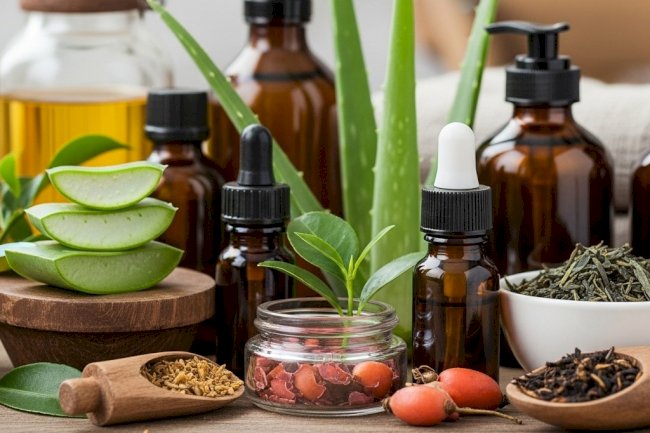VO2 Max and Longevity: The Fitness Metric That Predicts a Longer Life

When it comes to predicting how long we’ll live, most people think of things like genetics, diet, or blood pressure. While all of these are important, there’s one fitness measurement that’s gaining attention as one of the strongest predictors of longevity—and chances are, you’ve heard it tossed around by serious runners and cyclists.VO2 max.Traditionally used to assess athletic performance,Longevity VO2 max has now earned its place in the broader conversation about health and lifespan. More than just a number for elite athletes, your VO2 max may actually say more about your future than your cholesterol levels or BMI. Surprised? You’re not alone.Let’s unpack what VO2 max really means, why it’s a critical marker for longevity, and how you can improve it—regardless of your age or fitness level.
What is VO2 Max?
VO2 max stands for "maximal oxygen uptake". It’s the maximum amount of oxygen your body can utilize during intense exercise, measured in milliliters per kilogram of body weight per minute (ml/kg/min). Essentially, it tells us how efficiently your heart, lungs, and muscles work together to keep you moving under stress.The higher your VO2 max, the more oxygen you can use, and the better your body performs aerobically. A high VO2 max means your cardiovascular system is strong and efficient—able to deliver oxygen-rich blood to your muscles when they need it most.
The Connection Between VO2 Max and Longevity
You might assume VO2 max is only relevant to athletes chasing personal bests. But science tells a different story.A landmark study published in JAMA (Journal of the American Medical Association) in 2018 analyzed data from over 120,000 people and found that cardiorespiratory fitness, measured by VO2 max, was one of the strongest predictors of all-cause mortality. In fact, people with low cardiorespiratory fitness had significantly higher risks of death than those with even modest or high fitness levels. The difference was especially stark in older age groups.Another study from the American Heart Association found that a higher VO2 max was associated with a lower risk of cardiovascular disease, cancer, and neurodegenerative conditions.In other words, your ability to use oxygen efficiently isn’t just about athletic potential—it’s about how well your body can withstand the tests of time.
Why VO2 Max Is So Powerful
Unlike some health markers that focus on just one organ or system, VO2 max reflects the overall condition of your cardiovascular and respiratory systems, along with muscular health and metabolic efficiency. A strong heart pumps more blood with each beat, which improves oxygen delivery.Healthy lungs efficiently exchange gases during breathing.Healthy blood vessels transport oxygen and nutrients where they’re needed.Fit muscles extract and use oxygen more effectively.Because it encompasses so many aspects of health, it makes sense that VO2 max is a predictor of not just performance—but survival.
How to Improve Your VO2 Max
While genetics play a role, VO2 max is highly trainable, even into your 50s, 60s, and beyond. The key? Consistent aerobic training and occasional intensity.Short bursts of hard work (like 30–60 seconds of sprinting or cycling) followed by rest. This kind of training puts your cardiovascular system under stress, pushing your VO2 max higher over time.Long, moderate-effort sessions—running, cycling, swimming, or brisk walking—help build your aerobic base and increase oxygen utilization over time.Muscle mass and strength improve overall metabolism and help support heart health, making your body more efficient during physical exertion.You don’t need to live at the gym. Daily movement—walking, hiking, even yard work—keeps your system functioning and supports long-term gains.
How to Measure Your VO2 Max
TThe most accurate method involves wearing a face mask while running or cycling as your oxygen intake and carbon dioxide output are analyzed. This is often done in a sports clinic or university lab.Many smartwatches now estimate VO2 max using heart rate and movement data. While not as precise as lab tests, they’re great for tracking changes over time.Here’s the real takeaway: You don’t need to be a marathon runner to care about your VO2 max. Whether you're in your 30s or your 70s, improving this number can mean:VO2 max isn’t just a fitness stat. It’s a window into how well your body works—and how long it might keep working.
Conclusion
As it turns out, your ability to breathe, move, and sustain activity isn’t just about performance—it’s about preservation. VO2 max is emerging as one of the most meaningful indicators of how long, and how well, we’ll live.So, instead of only tracking your weight or steps, consider focusing on this powerful measure of fitness. Improve it little by little, week by week, and you'll not only feel better—you might just live longer, too.Because longevity isn’t just about adding years to your life. It’s about adding life to your years—and VO2 max may be the key.
What's Your Reaction?













